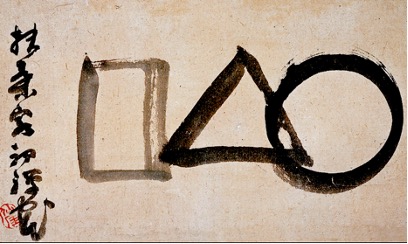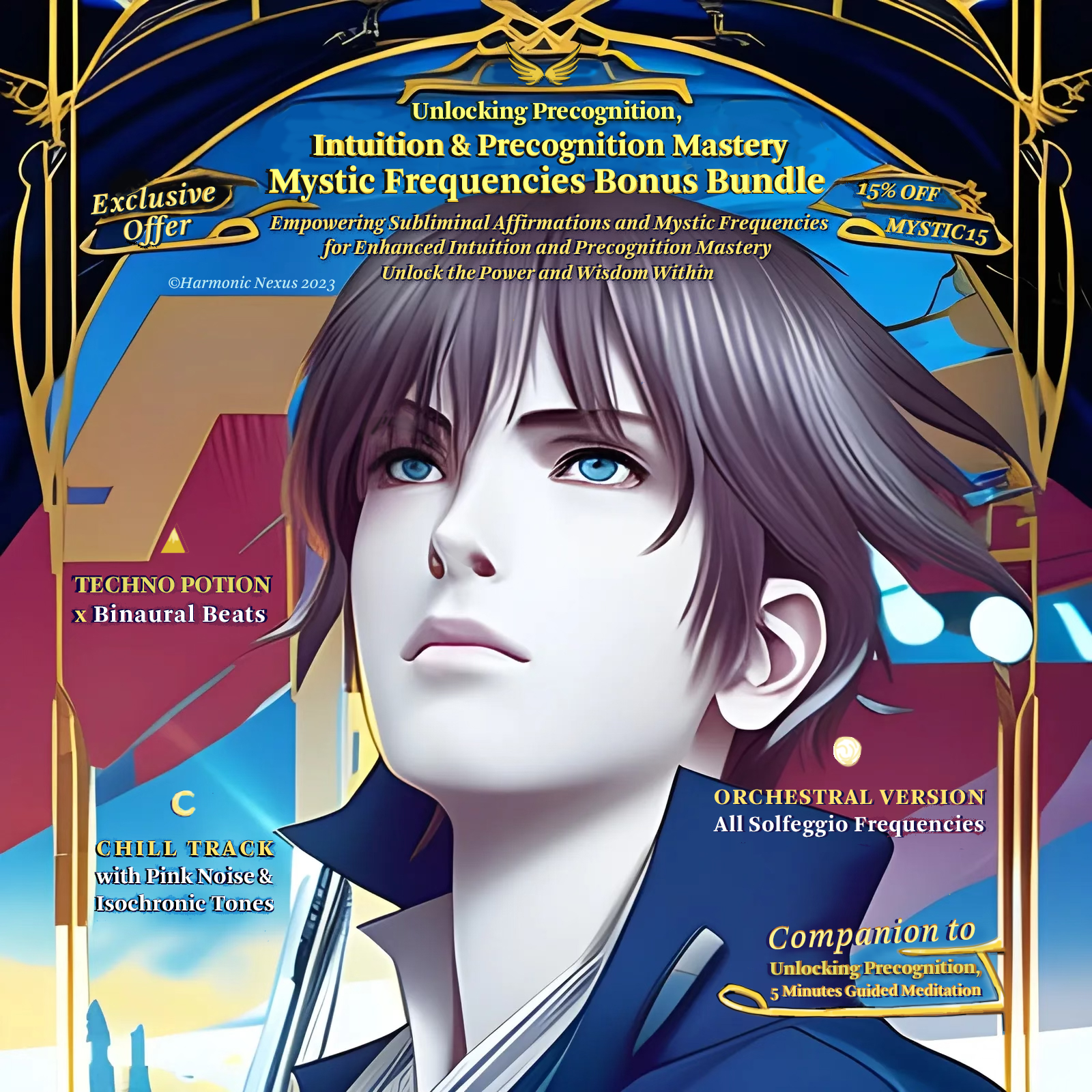Your cart is currently empty!

Enhancing Spiritual Practice with Koans, Ancient Wisdom for Modern Times

“Circle-Triangle-Square” by Sengai Gibon, a Zen master who used art to express profound truths. This visual koan represents the universe: the circle symbolizes infinity, the triangle represents form emerging from formlessness, and the square signifies stability and material existence.
In our fast-paced, information-saturated world, finding moments of true insight can feel like searching for a needle in a digital haystack. Enter the koan – an ancient Zen practice that’s surprisingly relevant for today’s spiritual practitioners. These enigmatic riddles offer a path to deeper understanding that goes beyond logical thinking, making them a powerful tool for personal growth and enlightenment in our modern age.
What is a Koan?
A koan is a story, dialogue, question, or statement used in Zen practice to provoke “great doubt” and test a student’s progress. The word “koan” (公案) literally means “public case” in Chinese, referring to a precedent or example that serves as a teaching tool.
The Purpose of Koan Practice
Koans serve several important functions:
- Transcending logical thinking: Koans are designed to short-circuit our habitual thought patterns.
- Cultivating intuition: By resisting rational analysis, koans help develop intuitive understanding.
- Awakening insight: Koans aim to trigger sudden realizations about the nature of reality.
- Deepening meditation: Working with koans can intensify and focus meditation practice.
Koan Examples
Traditional Koans
- “A monk asked Zhaozhou, ‘Does a dog have Buddha-nature?’ Zhaozhou replied, ‘Wu’ (No).”
- “Not the wind, not the flag; mind is moving.”
- “What is your face before you were born?”
- “What is the sound of one hand clapping?”
- “If you meet the Buddha on the road, kill him.”
Modern Koans
- “In the world of social media, what is the sound of one selfie posting?”
- “If an influencer goes viral in a forest of content, does anyone really care?”
- “What is your true profile before you created your online account?”
Practicing with Koans
- Choose a koan: Select one that resonates or perplexes you. For instance, you might start with “What is the sound of one hand clapping?”
- Meditate on it: During your meditation practice, gently focus on the koan. Don’t try to solve it, just hold it in your awareness.
- Carry it with you: Throughout your day, bring the koan to mind. While waiting in line for coffee, ask yourself, “What is the sound of one hand clapping?”
- Embrace not-knowing: Allow yourself to sit with uncertainty and confusion. This is where the magic happens!
- Trust the process: Remember that insight often comes unexpectedly. One practitioner shared: “I had been working with ‘What is your original face?’ for months. Then one day, while washing dishes, I suddenly burst out laughing. I couldn’t explain why, but I felt I understood something profound.”
Benefits of Koan Practice
- Enhanced mindfulness and presence
- Increased mental flexibility and creativity
- Deeper spiritual insights and awakening experiences
Improved ability to handle life’s paradoxes and uncertainties
Koan Groups and Communities
Many Zen centers offer koan study groups or “koan salons” where practitioners can explore koans together. These communal settings provide opportunities for shared insights and mutual support in navigating the often perplexing world of koans. Don’t hesitate to seek out or form a group to discuss koans with others – the collective exploration can lead to unexpected insights and a lot of fun.
Remember, the goal of koan practice is not to “solve” the koan intellectually, but to allow it to transform your consciousness and open new ways of perceiving reality. As Zen master Wumen commented, “It is like swallowing a red-hot iron ball. You try to vomit it out, but you can’t”.
In conclusion, koans offer a unique and powerful way to deepen your spiritual practice and cultivate intuitive wisdom. By engaging with these ancient puzzles, you open yourself to new perspectives and insights that can profoundly impact your life. Whether you’re a seasoned meditator or just beginning your spiritual journey, working with koans can add a fascinating dimension to your practice.
Embrace the challenge, and let the koans work their magic on your mind and spirit. Who knows? Your next moment of enlightenment might be just one perplexing question away.
We’d love to hear about your experiences with koans! Have you worked with them before? Did any of the koans in this article particularly resonate with you? What does Sengai Gibon’s ‘Circle-Triangle-Square’ visual koan mean to you? How do you interpret its symbolism in your own spiritual journey? Share your thoughts and insights in the comments below.

Enhancing Spiritual Practice with Koans, Ancient Wisdom for Modern Times

Telepathy in Healing, A Powerful Tool for Transformation

Intuition & Precognition Mastery Empowering Affirmations

Leave a Reply